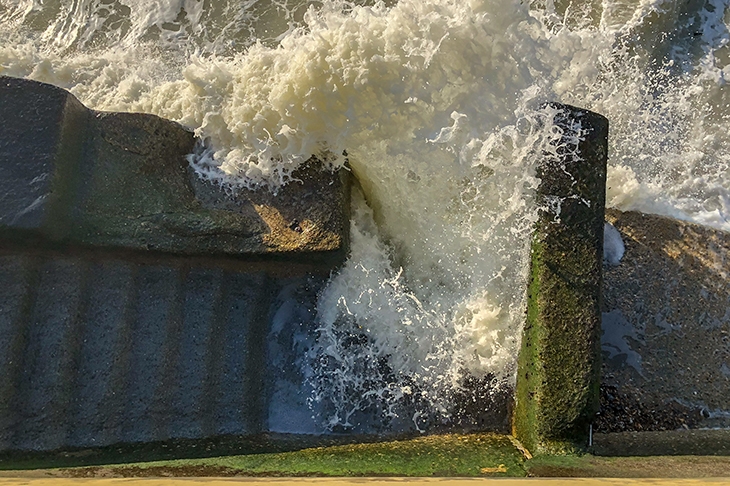Dystopian fiction continues to throng the bookshelves, for all the world as though we weren’t living in a dystopia already, and the latest entrant to the glum-futures category is John Lanchester’s The Wall, about which much can be divined from a glossary of the capitalised nouns that throng it from the title onwards. The Wall encircles the perimeter of a fortified Britain. The Change has caused the sea level to rise, transforming the world forever. The Defenders, a national service now demanded of all young people, protect the Wall. The Guards patrol the coastal waters in boats, the Flight in planes. The Others want to get over the wall from outside, by violence or stealth. The Breeders make babies, which most people won’t do any more. The Help are disenfranchised immigrants, enslaved to the country’s citizens.
And there, pretty much, you have the Story. If all this sounds a bit less like Lanchester (sly literary novelist, LRB writer, author of bestselling economic non-fiction) and more like one of those 1960s cli-and-sci-fi novels by, say, John Christopher, in which Britain starved/ froze/ crumbled or young people wandered through landscapes denominated with imposing majuscules — Conurbs, Counties, Barriers — well, the parallels do not by any means stop there.
Lanchester’s narrator is Joseph Kavanagh, a downbeat young chap posted to his first Defender’s tour of duty at the beginning of the novel. Service on the ramparts is mostly standing and waiting (‘Always water, sky, wind, cold,’ observes Kavanagh, ‘and of course concrete’), with a cup of tea or a fruit and nut bar the high point of most shifts and, very occasionally, a military drill. As Kavanagh broods and muses, we learn most of what we need to know about his future Britain: its 10,000km of fortification, its grimly restricted diet, its iron discipline — for every Other who gets over the wall, a Defender is put to sea in an open boat — and, most striking of all, the disconsolate fury that its young feel for their elders. ‘Want to put me straight about what I’m doing wrong in my life, Grandad?’ suggests Kavanagh. ‘No thanks. Why don’t you travel back in time and unfuckup the world and then travel back here and maybe we can talk.’
So, discuss: Brexit isolationist parable? Trump-era migration satire? Dire climate-change pronouncement? Military-flavoured Godot? Whatever your read on The Wall’s initial chapters, this part of the novel is visibly tuned to invite allegorical speculation. So it is at least surprising when Lanchester hits the midpoint and turns it into an old-school young-adult adventure story, whisking Kavanagh and the reader away from Fortress Britain before any of the metaphorical blows can really land.
The back half, in which the protagonists take to the sea and encounter ragtag post-apocalypse settlements, wicked pirate rapists and the like, is likely to play several more old tunes to those acquainted with previous fictional catastrophes, leaving the whole affair as a serviceable but slightly baffling experiment, never much more than the sum of vaguely familiar parts. Even so, it’ll probably do fabulously on Netflix one of these days.






Comments